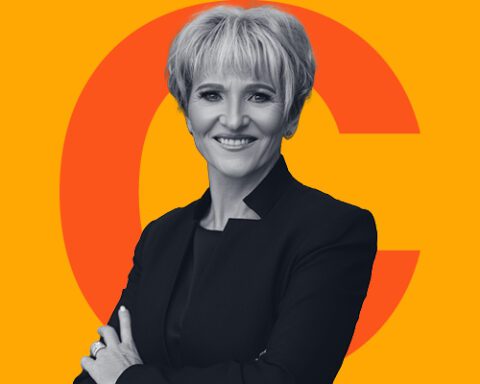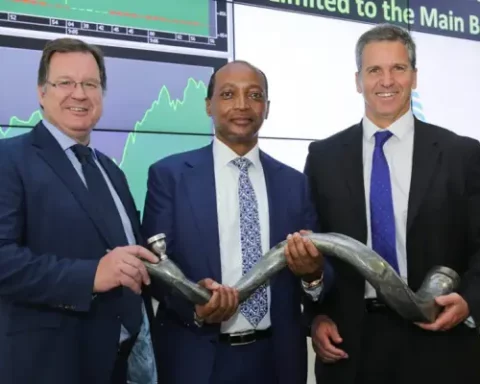In the space of less than a week there has been a flurry of remarkably upbeat-looking trading statements from the listed corporate community. All, except fish and food processing group Oceana, had good news for investors.
“Tiger Brands delivered a robust full-year performance, continuing to build on the turnaround reported in the first six months to March 2024,” said the food manufacturing group.
At Astral, shareholders were told, “earnings per share are expected to increase between 240% and 250% compared to the year ended September 30 2023”.
At furniture retail group Lewis, shareholders were advised “that the group’s financial results for the six months ended September 30 2024 reflect a strong trading and operational performance … with continued strong credit sales and robust growth in the debtors’ book”.
Even property companies are getting in on the upbeat act. Referring to prospects of “an upward property cycle in FY25” in its recent annual results announcement, Redefine Properties talked about confidence being restored “on the back of lower political uncertainty, improved electricity supply, and progress made in implementing broader institutional and economic reform programmes to address long-standing constraints”.
Coronation Fund Managers also had good news for shareholders, informing them that the board “is satisfied that a reasonable degree of certainty exists that the financial results will increase by more than 20%” for the year ended September 30 2024.
So, things are looking good, yes? Well, no, or at least not quite as much as a cursory glance at the trading updates suggests. Look a little deeper and it seems the best we can say is that things now aren’t as bad as they were. There’s been a general improvement from what was likely one of the worst periods in South Africa’s history.
Coming off a low base
Jean Pierre Verster of Protea Capital Management, who isn’t expecting too much positive action until late next year, says the 10 years to end-2025 will become known as the missing decade. “Growth has been absent for that period and that lack of growth has shrunk the middle class. Now the economy needs to expand in order to push employment growth,” Verster tells Currency.
There’s no doubt sentiment has picked up, but so far there’s not much hard evidence of an economic turnaround. And this time around investors want to see that hard evidence before getting too excited. There won’t be a repetition of Ramaphoria 1.0, says Verster referring to 2018 when the markets took off on the back of expectations that the newly appointed President Cyril Ramaphosa would undo the damage wreaked by almost a decade of Jacob Zuma rule. Sadly, there was no obvious improvement.
“A lot of investors are wary of falling into that trap again. So, while the sentiment has improved, this time investors are cautious,” says Verster.
And, when you look closer, there are good reasons to be circumspect. It turns out that Astral’s earnings are surging on the back of the non-repeat of some horrendous events in financial 2023 – events that caused the company to slide into its first loss in 24 years. It wasn’t just the Eskom power cuts and the devastating water supply constraints – Astral also had to contend with the country’s worst-ever outbreak of bird flu.
Tiger Brands’ “robust” full-year performance turns out to be based on nothing more exciting than a marginal improvement in sales and a modest recovery in margins. Cost-saving initiatives and asset sales rather than strong consumer demand are what’s propping up Tiger right now.
While Redefine saw reasons to be more optimistic in its results release, during a subsequent presentation the executives talked of continued challenging times and even told analysts that things could get worse before they get better.
Coronation’s strong earnings bounce in financial 2024 turns out to be almost entirely down to the success of its R800m tax litigation against the South African Revenue Service and the resulting reversal of the provision that had been raised in the prior year. Excluding the tax matter, earnings have increased by less than 10%.
So, the only set of results that withstands scrutiny is Lewis’s, and that group has had a tendency to pump out decent results almost no matter what. The furniture retailer is expecting headline earnings to increase by between 35% and 45% on the back of stronger trading and improved profitability. Debt collections have been maintained at near record levels, says management.
Cautiously upbeat
Anchor Group’s Mike Gresty tells Currency that Lewis’s performance is well ahead of his now cautiously upbeat outlook for consumer stocks. He had thought a much-improved Eskom, expectations of continued interest rate cuts as well as the steady withdrawals from the two-pot pension system would have done more for consumer confidence.
Gresty says he was more optimistic a few months ago, but signs of an improvement are not coming through as persuasively as he initially expected. Though there’s been recent relief on the fuel and food front, consumers are still trying to deal with the previous prolonged period of price increases, particularly of administered services such as rates and electricity.
Gresty believes caution is justified by the sort of figures reported by Famous Brands a few weeks ago. This mass consumer player was only able to report a marginal increase in revenue and steady operating profit for the six months ended August. Price increases masked a volume decline. But though managements says the “green shoots of consumer confidence are not yet materialising in spending” it is upbeat about prospects for the second half.
The just-released Truworths update for the first 18 weeks of financial 2025 confirms a similar view. A 2.8% increase in retail sales was largely down to the group’s UK business. Truworths Africa manage only 0.2%. At the AGM, held on Thursday morning, group chair Hilton Saven talked of “positive prospects”, but said these had not yet translated into meaningful signs of consumer strength.
Gresty reckons that a few months ago share prices ran on the back of the considerably improved post-GNU investor sentiment but now the investor mood and share prices have stalled in a wait-and-see mode. He says the year-end holiday period will be crucial, and he’s hoping another cut of 25 basis points will help nudge sentiment towards actual spending.
But with Donald Trump heading for the White House, who knows?
Sign up to Currency’s weekly newsletters to receive your own bulletin of weekday news and weekend treats. Register here.









